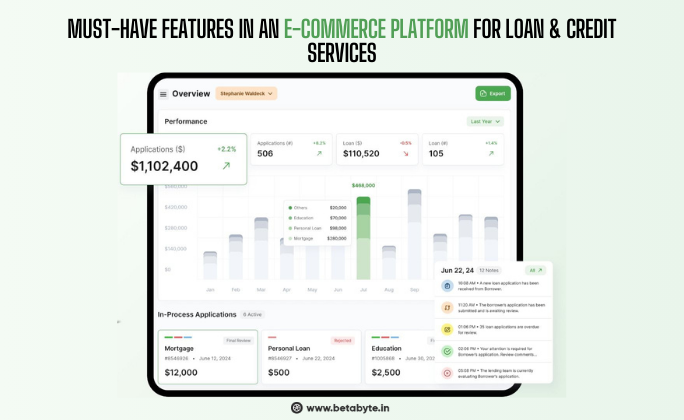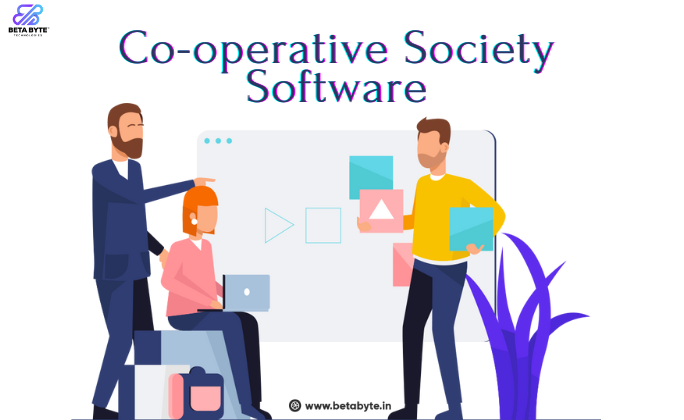B2B Fintech Software
B2B Software Development and Its Impact on Business Efficiency
 Published on
June 14, 2024
Published on
June 14, 2024

In today’s fast-paced business environment, efficiency is key to maintaining a competitive edge. As businesses strive to optimize operations and enhance productivity, B2B software development has emerged as a critical factor in achieving these goals. This blog explores the significance of B2B software development and its profound impact on business efficiency.
Understanding B2B Software Development
B2B (Business-to-Business) software development involves creating software solutions tailored to meet the specific needs of businesses. Unlike B2C (Business-to-Consumer) software, which focuses on individual users, B2B software is designed to address the complex requirements of organizations. These solutions range from enterprise resource planning (ERP) systems and customer relationship management (CRM) tools to supply chain management software and business intelligence platforms.
Enhancing Operational Efficiency
One of the primary benefits of B2B software development is the enhancement of operational efficiency. Here’s how it achieves this:
1. Automation of Routine Tasks
B2B software automates repetitive tasks, reducing the need for manual intervention. Automation streamlines processes such as data entry, invoicing, and inventory management, allowing employees to focus on more strategic activities. This not only saves time but also minimizes the risk of errors, ensuring greater accuracy in business operations.
2. Improved Communication and Collaboration
Effective communication and collaboration are vital for business success. B2B software solutions facilitate seamless communication between teams, departments, and even external partners. Features like instant messaging, project management tools, and shared databases enable real-time collaboration, fostering a more connected and productive work environment.
3. Data-Driven Decision Making
Access to accurate and timely data is crucial for making informed decisions. B2B software provides businesses with powerful analytics and reporting capabilities. By analyzing data from various sources, companies can gain valuable insights into market trends, customer behavior, and operational performance. This data-driven approach empowers businesses to make strategic decisions that drive growth and efficiency.
4. Customization and Scalability
Every business has unique requirements, and off-the-shelf software solutions often fall short of meeting these needs. B2B software development offers the advantage of customization. Developers can tailor software solutions to align with specific business processes, ensuring a perfect fit. Moreover, B2B software is scalable, allowing businesses to adapt and expand their systems as they grow, without the need for significant overhauls.
Boosting Customer Satisfaction
In addition to improving internal operations, B2B software development also plays a crucial role in enhancing customer satisfaction. Here’s how:
1. Streamlined Customer Interactions
Efficient customer service is a cornerstone of business success. B2B software solutions such as CRM systems enable businesses to manage customer interactions effectively. By maintaining detailed customer records, tracking interactions, and automating follow-ups, companies can provide personalized and timely support, resulting in higher customer satisfaction.
2. Faster Response Times
In today’s digital age, customers expect quick responses to their queries and issues. B2B software solutions offer features like chatbots and automated response systems that provide instant assistance. This reduces response times and ensures that customers receive the help they need promptly, leading to improved customer experiences.
3. Enhanced Product and Service Offerings
B2B software development allows businesses to innovate and enhance their product and service offerings. By leveraging technology, companies can introduce new features, improve existing ones, and deliver greater value to their customers. This continuous improvement cycle helps in retaining customers and attracting new ones, ultimately driving business growth.
Reducing Costs and Increasing ROI
B2B software development is not just about improving efficiency; it also has a significant impact on the bottom line. Here’s how it contributes to cost reduction and increased ROI:
1. Reduced Operational Costs
By automating routine tasks and streamlining processes, B2B software reduces the need for manual labor and associated costs. It also minimizes errors, reducing the costs associated with rectifying mistakes. Overall, businesses can achieve substantial savings in operational expenses.
2. Optimized Resource Utilization
B2B software enables businesses to make better use of their resources. With features like resource management and scheduling, companies can allocate their workforce, equipment, and materials more effectively. This optimization ensures that resources are used efficiently, reducing waste and maximizing productivity.
3. Higher Productivity and Output
With streamlined processes and improved efficiency, employees can accomplish more in less time. B2B software solutions eliminate bottlenecks and reduce downtime, allowing businesses to increase their output. This higher productivity translates into greater revenue generation and a higher return on investment.
Conclusion
In conclusion, B2B software development is a game-changer for businesses aiming to enhance efficiency, boost customer satisfaction, and achieve cost savings. By automating tasks, improving communication, enabling data-driven decision-making, and offering customization, B2B software empowers businesses to optimize their operations and drive growth. As technology continues to evolve, the importance of B2B software development in achieving business success will only continue to grow. Investing in tailored software solutions is not just an option; it’s a strategic necessity for businesses looking to thrive in the modern marketplace.













